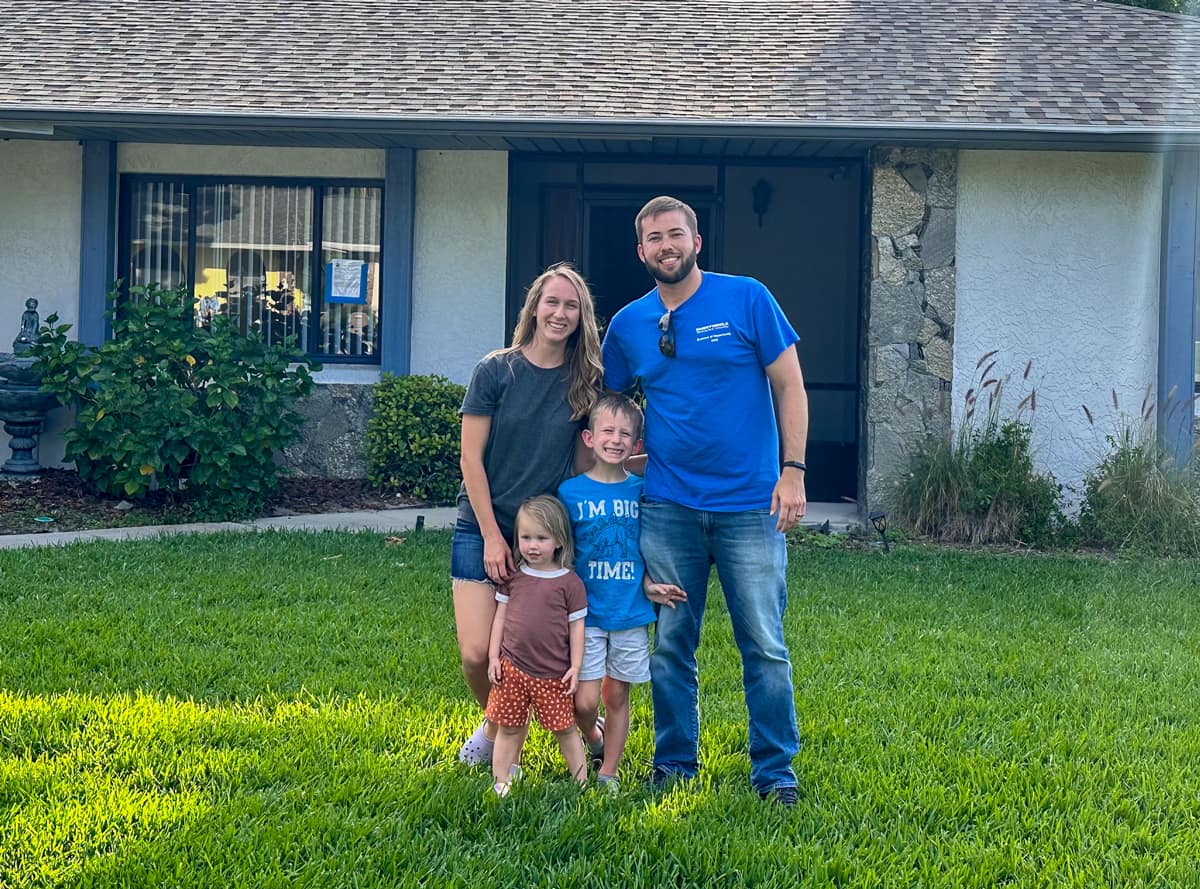NASA Intern Program Sets Up Embry-Riddle Student Veteran to Test Space Careers

When Embry-Riddle sophomore Noah Pointer was preparing to travel to a prestigious NASA internship program, the husband and father of two asked his family whether they would prefer to stay in Florida or move with him to Houston, where he would be working at NASA’s Johnson Space Center for the spring and maybe the summer semester.
His 6-year-old and 3-year-old immediately started “packing,” Pointer said, though he and his wife assisted with the kids’ suitcases to make sure they had more than toys and stuffed animals upon arriving at their new home last month.
Pointer, who is majoring in Software Engineering, has been selected to participate in the NASA Pathways program. The program, which offers a series of internships that alternate with academic semesters until graduation, invites interns to try different NASA departments in order to choose potential careers. Undergraduates are advised to do at least three different internships. Pointer’s first is in the space agency’s Flight Directorate.
“It’s NASA, so the opportunity to work with the best in the world is incredible,” said Pointer, who is a U.S. Army veteran. “The Pathways program is amazing because Johnson Space Center’s workforce includes a high percentage of Pathways interns, and the program allows you to try out different positions and departments to see where you truly want to work and what you want to work on.”
Hailing from the small farming town of Martin in northeast Georgia, Pointer moved back there with his family after his military service but then decided he wanted to go back to school. Embry-Riddle Aeronautical University offered the Software Engineering degree he was seeking, and Pointer was drawn to the beauty of the Florida landscape. Applying to a number of schools, Embry-Riddle won out with its “extremely high job rate upon graduating,” Pointer said, adding that the school’s connections to industry were very attractive. “I’ve had multiple opportunities to network directly with industry professionals.”
A member of Dr. Bryan Watson’s Biologically Inspired Design-for-Resilience lab, Pointer researches the identification of biometric indicators of thriving in undergraduate engineering students, examining correlations between their physiological and psychological experiences. He will be presenting the research at the American Society of Engineering Education (ASEE) conference next year in Montreal.
Watson, assistant professor of Systems Engineering, said “it became clear to me almost immediately that Noah was an exceptional student. He sought out research opportunities as a freshman and has already successfully submitted a paper to ASEE. Noah approaches each task with professionalism, and it has been a real pleasure to work with him.”
Pointer was also selected for the National Science Foundation’s Scholarships to Accelerate Graduates in Engineering for STEM (SAGE-STEM) in September 2024 under the mentorship of Dr. Omar Ochoa, associate professor of Electrical Engineering and Computer Science.
SAGE-STEM offers $10,000 a year for four years of undergraduate study and a fifth-year accelerated master’s program in certain areas of computer science. The scholarships are awarded to domestic, low-income, high-achieving students who demonstrate financial need. The program also offers a supportive ecosystem that includes faculty mentoring, academic advising, participation in a learning community, professional development activities, guidance in acquiring internships and research opportunities.
Pointer said he has balanced his education and family by treating school like a job, mostly completing his assignments while at school between 8 a.m. and about 5 p.m.
“One of the hardest things is that when you are at home you're not really at home because you have so much stuff to do, and when you have younger kids, they don't understand that and they just see that you are physically present and want to spend time with you. It’s hard to deny them that at an age where your presence as a father is crucial,” Pointer said, adding, “I think my family and I have it down pretty well at this point, and having an amazing wife truly makes it possible. We know how to work together to make sure the kids have a great life.”
Bringing his family to Houston made sense in two ways, Pointer said.
“There’s no reason to spend time apart if we don’t have to,” he said. “And if I end up getting an offer after graduation at Johnson Space Center, we would all be familiar with the area when considering the job.”
Pointer said he and his family are looking forward to exploring Texas, going to rodeos, visiting historical places, going fishing and taking a road trip to national parks in the Southwest after his first internship finishes.
“So far, it’s been great and a fun adventure for everyone,” he said.

 Michaela Jarvis
Michaela Jarvis